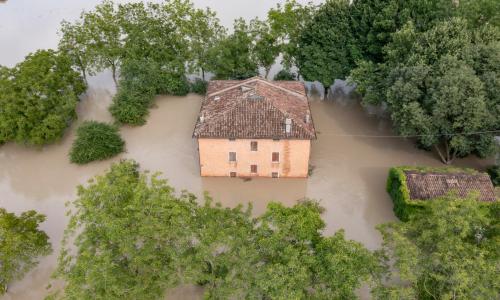A new study has found that planet-heating pollution doubled the chance of the extreme levels of rain that hammered central Europe in September.
Researchers found global heating aggravated the four days of heavy rainfall that led to deadly floods in countries from Austria to Romania. The rains were made at least 7% stronger by climate change, World Weather Attribution (WWA) found, which led to towns being hit with volumes of water that would have been half as likely to occur if humans had not heated the planet.
“The trend is clear,” said Bogdan Chojnicki, a climate scientist at Poznań University of Life Sciences, and co-author of the study. “If humans keep filling the atmosphere with fossil fuel emissions, the situation will be more severe.”
Storm Boris stalled over central Europe in mid-September and unleashed record-breaking amounts of rain upon Austria, the Czech Republic, Hungary, Poland, Romania and Slovakia. The heavy rains turned calm streams into wild rivers, triggering floods that wrecked homes and killed two dozen people.
Read also: Labour appoints Kyte to climate envoy role
The researchers said that measures to adapt had lowered the death toll compared with similar floods that hit the region in 1997 and 2002. They called for better flood defences, warning systems and disaster-response plans, and warned against continuing to rebuild in flood-prone regions.
“These floods indicate just how costly climate change is becoming,” said Maja Vahlberg, technical adviser at the Red Cross Red Crescent Climate Centre, and co-author of the study. “Even with days of preparation, flood waters still devastated towns, destroyed thousands of homes and saw the European Union pledge €10bn in aid.”
Rapid attribution studies, which use established methods but are published before going through lengthy peer-review processes, examine how human influence affects extreme weather in the immediate aftermath of a disaster.
The scientists compared the rainfall recorded in central Europe over four days in September with amounts simulated for a world that is 1.3C cooler – the level of warming caused to date by burning fossil fuels and destroying nature. They attributed a “doubling in likelihood and a 7% increase in intensity” to human influence.
But the results are “conservative”, the scientists wrote, because the models do not explicitly model convection and so may underestimate rainfall. “We emphasise that the direction of change is very clear, but the rate is not.”
Story was adapted from the Guardian.
